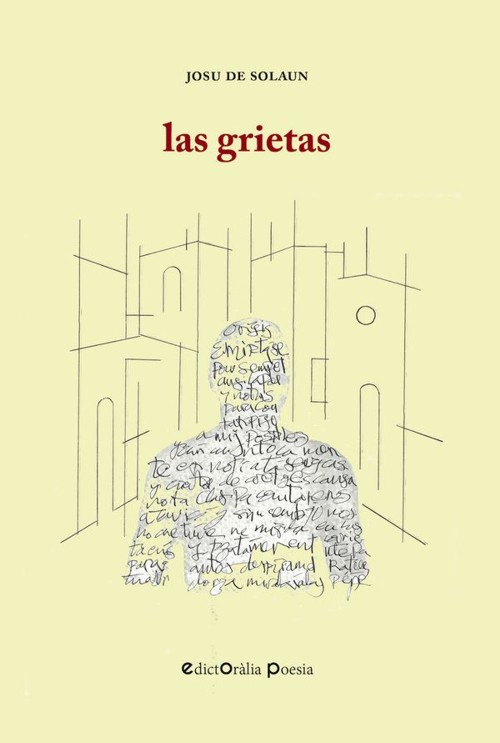
Las Grietas: Between the Cracks
I have always believed that poetry and music spring from the same well.
Both are forms of listening, of drawing from silence, and of responding to the mysterious pulse beneath the surface of things. Before I ever published a poem, I was already immersed in the world of poiesis: not merely the poetic in the narrow sense, but the broader act of bringing something into being. To compose a phrase at the piano, to improvise on a motif, to inhabit the emotional architecture of a sonata—this too is poetry. It is the poietic act: the making, the shaping, the conjuring of form out of nothing but breath, memory, and attention.
Writing poetry became a natural extension of my life as a musician. It is what happens when the hand is momentarily freed from the keyboard and reaches for a pen, or simply, for words. When sound is stilled, and what remains is echo. I do not write to explain; I write to gesture, to suggest, to open a space where ambiguity can breathe. As with music, the best moments in poetry are those that resist paraphrase. A note held just long enough. A word suspended at the edge of silence.
"Las Grietas", "The Cracks" (2021), is my first published book of poetry. But its roots run deep into the sediment of twenty years lived in New York City, from 1999 to 2019. I was seventeen when I arrived. The city taught me solitude and longing. It taught me to listen—to myself, to others, to the noise and the quiet that coexist in the bones of any great metropolis. These poems are not records of events, but the residue of time experienced. They emerged slowly, without pressure, during years of inwardness, restlessness, exile, love, and reinvention.
The collection is structured as a long walk through memory's cracked terrain. There are shadows and awakenings. Departures and chance encounters. Silences that sting and silences that soothe. A recurring desire to begin again. It is, in many ways, a book of thresholds, of moments that do not resolve, but hover. I wanted to invite the reader into those liminal spaces, where nothing is certain but everything is felt.
The poet Álvaro Valverde, in his generous preface to the book, speaks of these poems as slow, inward, and meditative, yet always anchored in the world. I think he is right. This is not escapist poetry. It is attentive poetry. It tries to look gently but unflinchingly at reality, at its contradictions and textures. At the fragility that lies just beneath the surface of our certainties.
Throughout Las grietas, echoes of my poetic influences can be found, especially Luis Cernuda, César Simón, Wallace Stevens, Rainer Maria Rilke, Fernando Pessoa, Saint John of the Cross; figures who also lived in tension between the visible and the invisible. I often begin my verses with a capital letter, in homage to Cernuda. From him I inherited a certain way of thinking and asking: a poetics of questions without answers, of distances that never fully close.
The book opens with two epigraphs, from Cernuda and Simón, that frame the spirit of the collection. One speaks of solitude. The other, of density. And perhaps that is what I have tried to explore: a life that feels dense, full, contradictory, unfinished. A life lived between what is and what could be.
There are homages scattered throughout the book: to poets, thinkers, filmmakers, musicians. Mahler, Wittgenstein, Tarkovsky, Eliade, Salinas, Neruda… Their presences are felt not as citations but as quiet companions. Sometimes the poems are direct dialogues with them. Other times, they are ghostly footprints on shared ground.
Certain sections of the book are rooted in particular places: Straus Park, Spuyten Duyvil, Princeton, Warsaw, Miami, Tbilisi, Martina Franca. But these are not travelogues; they are states of being. Emotional geographies. Cracks through which light and darkness seep in.
The final poems, written between 2012 and 2019, are perhaps the most distilled. They gesture toward the unsayable. A metaphysical tenderness, at once burning and elusive. One poem speaks of "ices that burn / just by thinking of them". Another of a "dense life / that only exists in its contradictions". That' s the paradox I live in and write from.
To those who come to these poems from my world as a pianist: welcome. You may recognize some of the silences. To those who find them as readers: walk slowly. Read aloud. Let the cracks speak.
For it is through them that light enters.
Josu de Solaun







